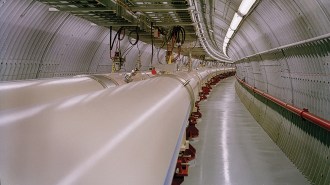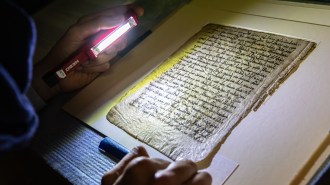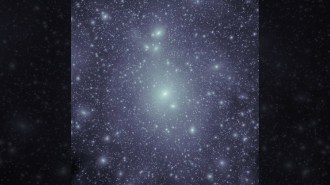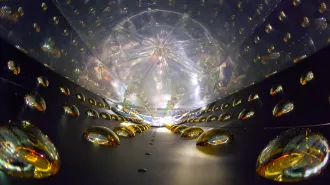Among schemes to build extraordinarily powerful computers whose calculations depend on quantum properties of particles, an approach using molecules in liquids as information bits has consistently attained a higher level of computing complexity than other designs. Now, a competing method, in which ultracold ions serve as bits, is moving up the problem-solving ladder.
In the Jan. 2 Nature, Stephan Gulde of the University of Innsbruck in
Austria and his colleagues there and at the Massachusetts Institute of Technology report carrying out a computation called the Deutsch-Jozsa algorithm. This quantum calculation evaluates certain mathematical functions in one operation, although a conventional computer would require two. To execute the simple procedure, the researchers used laser pulses, which can control the quantum state of a lone calcium ion.
Liquid-based systems have already mastered algorithms such as Deutsch-Jozsa and others that are more complicated (SN: 1/12/02, p. 31: Liquid computer takes key quantum step). However, Innsbruck’s Jürgen Eschner, a member of the research team, says it’s important that an ion-based system has reached the Deutsch-Jozsa rung because liquid systems aren’t expected to work in quantum-computer designs that include more than a handful of bits. In contrast, Eschner notes, ion-based approaches are more likely to accommodate the tens to hundreds of bits required for building practical computers.
****************
If you have a comment on this article that you would like considered for publication in Science News, please send it to editors@sciencenews.org.







